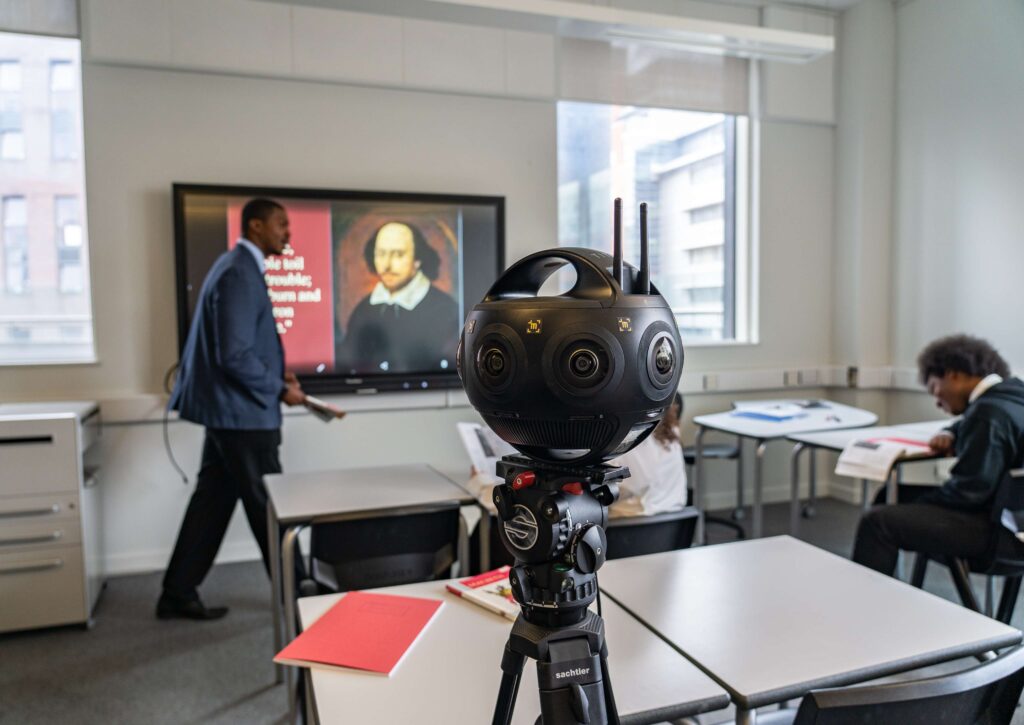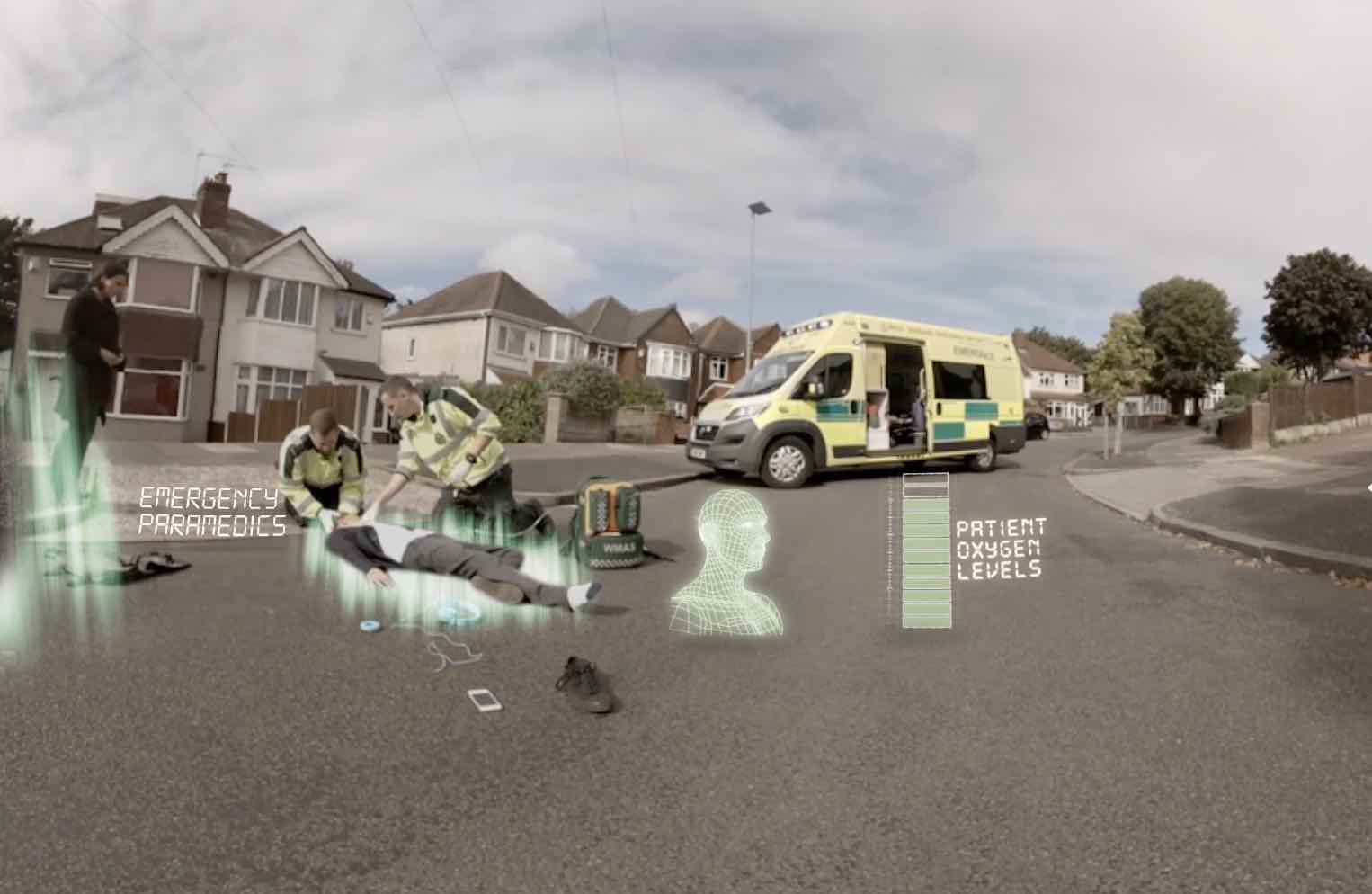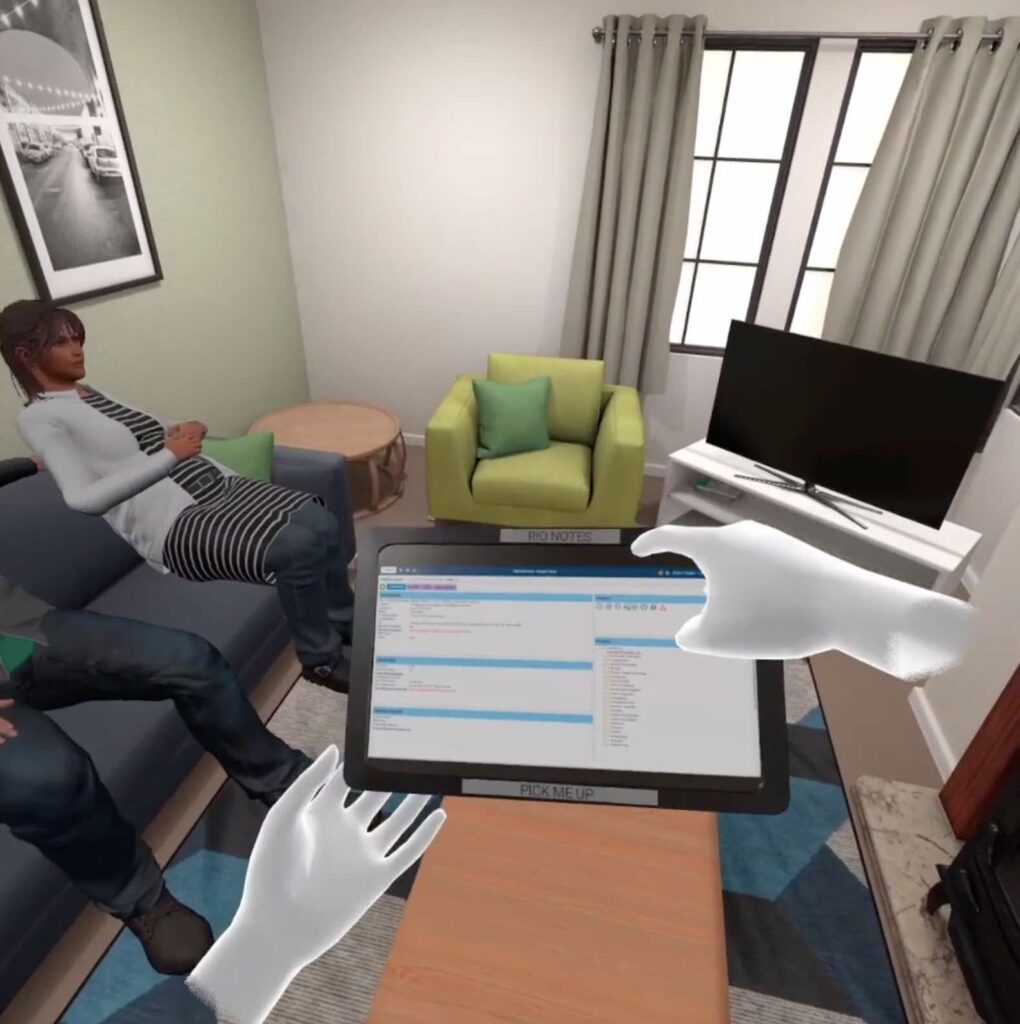Spark Media Video Production Agency
How Immersive 360° Video and VR is Transforming Training in Health and Social Care
- Rebecca Snoad
Date Published: 29/11/2024
Let’s face it. Training can sometimes feel, well, dry. PowerPoints and awkward role-playing exercises are useful, but they only really scratch the surface of real-world preparation. That’s where immersive 360° video and VR come in.
While VR has previously primarily been associated with the gaming and entertainment sectors, in recent years it has made significant advancements in the health and social care sector as well. It has been transforming training in this sector by turning it into a truly immersive and practical experience.
VR isn’t just cool tech. It’s an effective way to build skills, empathy, and confidence. For us, producing immersive 360° videos isn’t just about improving training. It’s about creating moments that stick. Storytelling with purpose.
In this blog, we’ll be running through 3 key benefits of using immersive 360° video and VR as a training tool and how this applies to the health and social care sector.


Developing Empathy
Immersive 360° videos and VR enable us to construct experiences that let healthcare and social care professionals step into someone else’s shoes in a way which changes how they learn, respond and connect in complex situations.
For example, you could explore the impact of child trauma in foster care settings or you could navigate the effect that social media has on young people’s safety and mental health, like in our series of VR films for Cornerstone VR. By walking in the footsteps of children and young people, the participant can better understand the root cause of difficult or disruptive behaviours. Instead of simply reading about the frustration, fear or sadness felt, they can experience it through their eyes, increasing empathy. This transforms how social workers and teachers approach challenging behaviour. VR training films bring learning into a context that make the experience more meaningful to health and social care professionals and students.
Developing Confidence
Immersive 360° video and VR let you step into a fully simulated environment where specialist actors can mimic real-life scenarios so that participants can learn valuable skills and behaviours in a safe and controlled environment. The best part? You can make mistakes without real-world consequences. Don’t know how to calm a heated situation? Try, pause, rewind, and try again. This trial-and-error approach builds the confidence needed to face challenging scenarios head-on.
Want to practise responding to an emergency situation or a tricky procedure? VR provides an opportunity for clinical training without the risk, before patients’ lives are on the line. This offers potential for greater learning and development, generating capacity and additional capability of those providing care. This is especially important in an environment where opportunities for practical clinical experiences are becoming more limited.

Developing Knowledge
Immersive 360° video and VR provide an engaging way to learn complex content, enabling patients, students and health and social care professionals to gain practical knowledge and improve their decision-making abilities.
It is a fantastic tool for patient education. You can more clearly and accurately show a nervous patient or their family members what to expect during surgery or a medical donation, easing their anxiety with a virtual walkthrough. You can also make the experience interactive, like by adding a quiz to check understanding, making informed consent truly informed.
VR is a tool that is being used more and more at schools, as it allows students to experience things they usually wouldn’t be able to in a classroom, such as unusual settings or on the job locations that are not usually available or accessible. For example, Stratford-upon-Avon college is using VR to teach students to recognise symptoms of dementia by letting them experience what it feels like to live with dementia.
But how effective a tool is it? Many studies have found that immersive 360° videos have a positive effect on the user’s emotional response to the learning climate, which has a significant effect on users’ motivation to learn. A recent paper by Future Care Capital states that ‘medical students demonstrate significantly higher knowledge gain when using immersive environment rather than screen-based learning’. In fact, research by Imperial College London found that 83% of VR-trained users could complete a spinal surgery with minimal guidance, whereas 0% of traditionally trained users could accomplish the same task.



Overall immersive 360° video and VR offer significant potential to improve both the access to health and social care training and the effectiveness with which it is delivered, which in turn leads to better care. By immersing learners in realistic scenarios where they can apply concepts, understanding and retention are both enhanced.
Looking for a VR and 360° video partner? Get in touch today.




